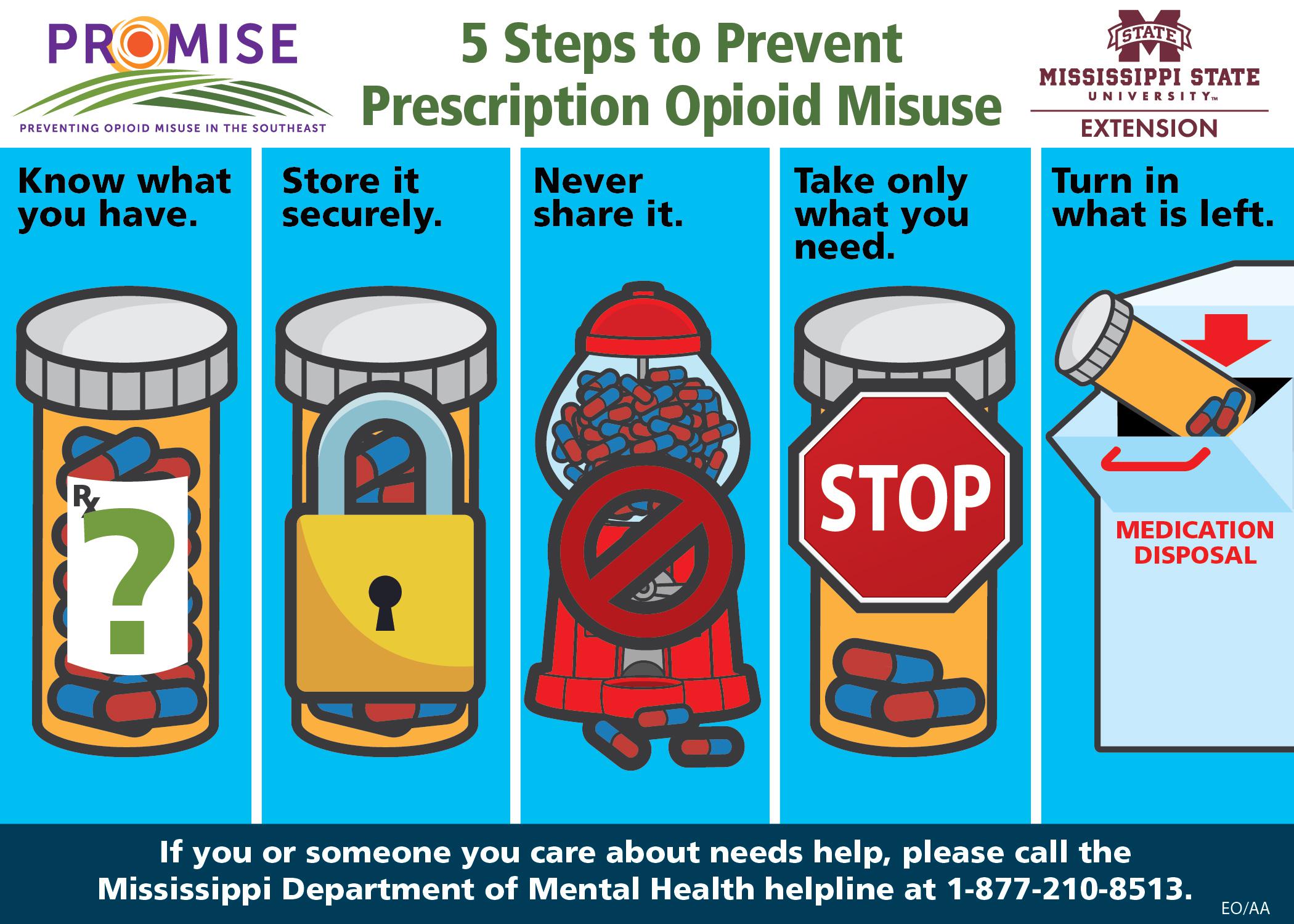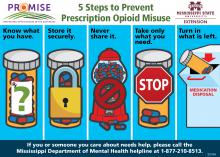Information Possibly Outdated
The information presented on this page was originally released on October 15, 2019. It may not be outdated, but please search our site for more current information. If you plan to quote or reference this information in a publication, please check with the Extension specialist or author before proceeding.
Opioid epidemic could be as close as the cabinet
STARKVILLE, Miss. -- Most Mississippians think of drug addiction as an issue other people face in faraway places, but the source of this problem could be as close as the family medicine cabinet.
David Buys, health specialist with the Mississippi State University Extension Service, said prescription opioids can provide relief from severe pain. They are commonly prescribed to help patients recover from routine medical procedures, such as outpatient surgery or dental work, or even just to control pain from common injuries.
“Even if a doctor prescribes you medicine, it still may harm you, if you use it improperly,” Buys said. “Prescription opioids are medications made from opium or chemicals derived from opium, which is what heroin and other illegal drugs are made of. It’s very easy to become dependent on opioids, even if it is ‘legal.’”
Buys outlined five steps to prevent misuse of medications, including opioids.
“First, know what you have,” he said. “When you get a prescription for pain medicine, ask your doctor or pharmacist if it is an opioid. Second, store it securely. Keep your pain medicine in a secure place.”
Buys cautioned against leaving pain medicine in a bathroom or kitchen cabinet, or out on the counter, where friends and family members might have access.
“Third, never share it,” Buys said. “Don’t share your pain medication with anyone, not even a family member; that’s not even legal.”
When pain can be adequately controlled by over-the-counter medications, make the switch.
“Take prescription medication only as long as you absolutely have to,” Buys said. “The sooner you can get by with a normal dose of aspirin, ibuprofen or acetaminophen, stop taking the prescription.”
Finally, Buys suggested safely disposing of leftover medications.
“Properly dispose of whatever is left; take it to your pharmacy or a secure ‘take-back’ box in your community,” he said. “For the sake of protecting the environment, don’t flush it or throw it in the trash.”
The next National Prescription Drug Take Back Day is Oct. 26. To find a secure collection site, visit https://takebackday.dea.gov.
Mary Nelson Robertson, coordinator of an Extension program to reduce opioid misuse, said each family has particular vulnerabilities related to this nationwide epidemic.
“Family members need to look out for each other, especially if there are older family members taking powerful medications,” Robertson said. “The seniors in our communities are surprisingly easy targets for medication theft and don’t want to consider the possibility that any of their relatives might be coming to visit and helping themselves to the medicine cabinet.”
For people experiencing chronic pain or going through life-threatening illnesses, prescription medications may be required for treatment. Robertson said they may feel stigmatized by all of the negative press surrounding the very medicines they rely on to get through the day.
“There are so many reasons for families to talk to each other about what they are going through physically, emotionally and medically,” she said. “It can be challenging to talk about illness, pain and the potential for addiction. But you never know whose life you might save by being willing to have difficult conversations, or by simply helping a loved one lock up their medications so no one else can get to them.”
Those who need help are urged to call the Mississippi Department of Mental Health Helpline at 1-877-210-8513.
For more information about “PReventing Opioid Misuse in the SouthEast,” the PROMISE Initiative, visit http://msuext.ms/promise.




